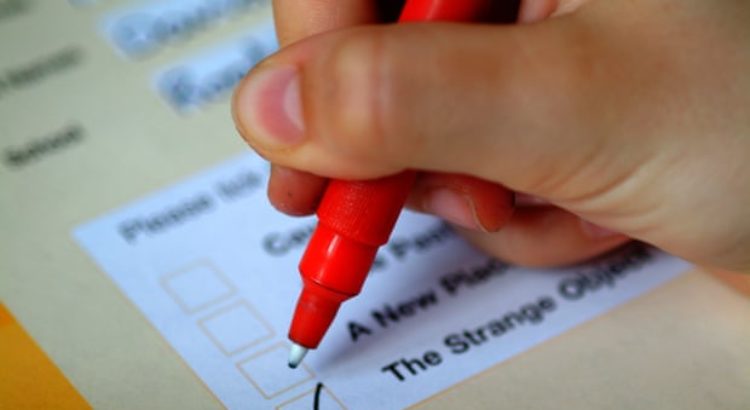By: Sally Weale.
A resounding 97% would like a ‘sensible alternative’ to the high-stakes attainment tests
A resounding 97% of primary school teachers would like to see high-stakes Sats tests scrapped, according to the largest poll undertaken on the subject.
More than 54,000 primary members of the National Education Union (NEU) took part in an indicative ballot last month. The vast majority said they supported their leaders’ campaign for “a sensible alternative” to the national standard attainment tests, which they say are damaging children and narrowing the curriculum.
The NEU said the result sent a clear message to the government that the assessment system must change. The results of a second question on the ballot paper, asking whether members would be prepared to take industrial action and boycott Sats, have not yet been released.
The NEU’s national executive will meet later this week to consider the next steps in their campaign, including industrial action, though the 39% response rate (more than 140,000 ballot papers were issued) would not meet the government’s industrial action ballot threshold.
The teachers’ poll coincides with the publication on Tuesday of the key stage 2 Sats results for 600,000 10- and 11-year-olds in England who took tests in reading, maths and spelling, punctuation and grammar (Spag) in May.
The tests are used by the government to assess school performance and hold schools to account. The NEU argues that young children should not be tested as it leads to hothousing, stress for both pupils and teachers, and a narrowing of the curriculum.
Kevin Courtney, the NEU’s joint general secretary, said the union’s indicative ballot showed there was “resounding support” for a change to primary assessment. “Labour, the Liberal Democrats and the Green party all have major concerns about our Sats-dominated system and have pledged to change it.
“Government now needs to listen, and to accept the need to change a culture in which too many classrooms are dominated by teaching to the test, at the expense of the learning and wellbeing of our children.”
The schools minister, Nick Gibb, dismissed the ballot, saying that scrapping Sats would be a backward step. “The NEU’s indicative ballot does not even represent half their members, let alone the whole teaching profession.
“These tests have been part of school life since the 90s and have been pivotal in raising standards in our primary schools. Abolishing these tests would be a terrible, retrograde step. It would enormously damage our education system and undo decades of improvement in children’s reading and maths.”
Jeremy Corbyn received a standing ovation when he announced to teachers gathered at the NEU’s annual conference in April that his party would scrap Sats. Delegates at the conference voted in favour of a ballot over a possible boycott of Sats tests, seeing off an amendment from the executive arguing that a ballot was not the most appropriate tactic.
Responding to the NEU ballot, the shadow education secretary, Angela Rayner, said: “These results should send the government a clear message that Sats aren’t working for teachers or pupils, and it’s about time they listened.”
More Than a Score, a campaigning group of parents, teachers and education experts, said: “It’s not right or accurate to base a school’s overall performance on the test results of primary-age children. There are more supportive ways to assess children and fairer ways to measure schools, without the need to turn pupils into data points.”
Source of the article: https://www.theguardian.com/education/2019/jul/09/primary-school-teachers-want-to-see-sats-scrapped








 Users Today : 42
Users Today : 42 Total Users : 35459637
Total Users : 35459637 Views Today : 90
Views Today : 90 Total views : 3418062
Total views : 3418062